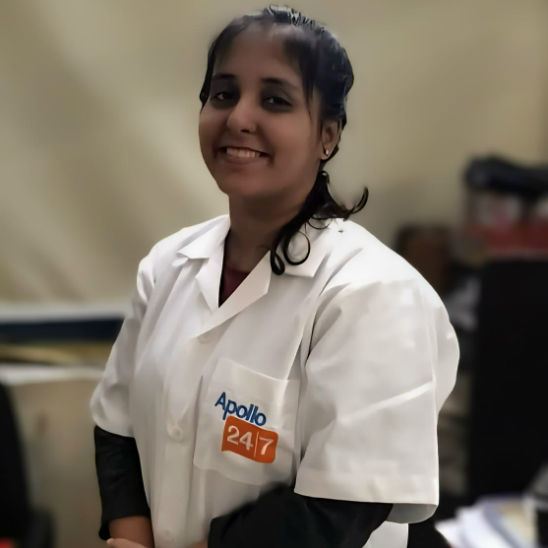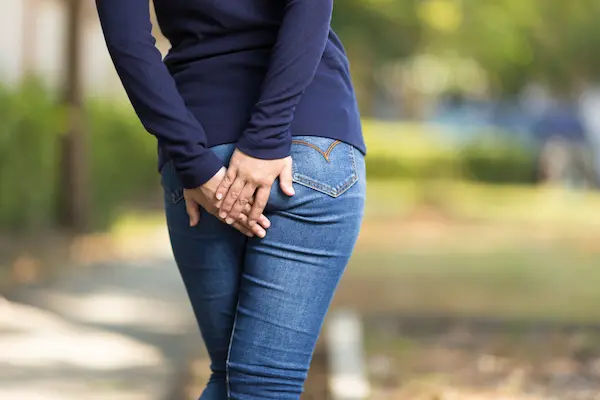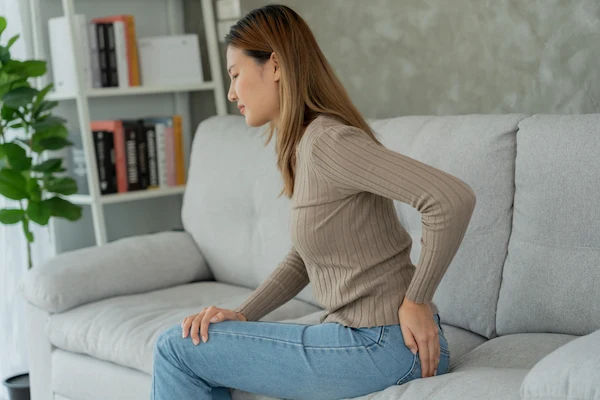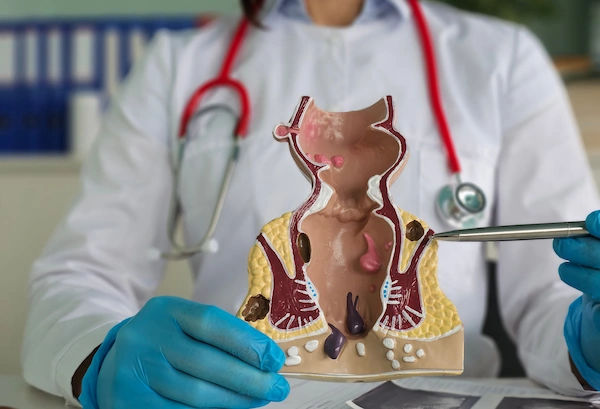Effective Haemorrhoid Care: A Modern Guide
Learn modern approaches to haemorrhoid care, including prevention, relief strategies, and treatments to manage discomfort effectively.

Written by Dr. Dhankecha Mayank Dineshbhai
Reviewed by Dr. Vasanthasree Nair MBBS
Last updated on 13th Jan, 2026

Introduction
Haemorrhoids are an incredibly common, yet often silent, health concern. If you're experiencing discomfort, itching, or bleeding, know that you are far from alone. It's estimated that nearly three in four adults will experience haemorrhoids at some point in their lives. While the topic can feel embarrassing, understanding haemorrhoid care is the first and most crucial step toward finding lasting relief. This guide moves beyond basic advice to offer a modern, proactive approach to managing this condition. We will walk you through everything from identifying your symptoms and implementing effective at-home remedies to understanding when it's time to seek professional medical intervention. Think of this as your comprehensive roadmap to taking control of your anal health, reducing discomfort, and preventing future flare-ups. Let's demystify haemorrhoid care together and advance your journey to feeling better.
What Are Haemorrhoids? Understanding the Basics
At their core, haemorrhoids are simply cushions of swollen veins and tissue located in the lower rectum and anus. Think of them like varicose veins but in this specific area. Everyone has these vascular structures; they play a role in maintaining continence. The problem arises when they become inflamed, enlarged, or engorged with blood, leading to the symptoms we associate with haemorrhoidal disease.
Internal vs. External Haemorrhoids: Knowing the Difference
Understanding the type of haemorrhoid you have is key to effective care. They are classified based on their location:
Internal Haemorrhoids: These lie inside the rectum. You usually can't see or feel them, and they rarely cause pain because there are few pain-sensing nerves in that area. Their most common symptom is bright red blood on the toilet paper, in the toilet bowl, or coating the stool.
External Haemorrhoids: These are under the skin around the anus. Because this area is rich in pain-sensing nerves, they can be very painful, itchy, and cause noticeable swelling. Sometimes, a blood clot can form within an external haemorrhoid, causing a sudden, severe pain; this is known as a thrombosed haemorrhoid.
The Real Culprits: Common Causes of Haemorrhoids
Haemorrhoids develop due to increased pressure in the lower rectum. The most frequent causes include:
Straining during bowel movements, often due to constipation.
Chronic diarrhea or constipation.
Sitting for long periods on the toilet.
Obesity.
Pregnancy, as the growing uterus presses on the veins.
A low-fibre diet.
Heavy lifting on a regular basis.
Health topic carousel:
Doctor's speciality: General Physician
Text: Consult a General Physician for the best advice
Recognising the Signs: Symptoms of Haemorrhoids
Early recognition of symptoms allows for quicker intervention. Common signs include:
Bright red blood after a bowel movement.
Itching or irritation in the anal region.
Pain or discomfort.
Swelling around the anus.
A lump or sensitive bump near the anus, which could be a thrombosed haemorrhoid.
When to Worry: Symptoms That Require a Doctor's Visit
While most haemorrhoids can be managed at home, certain symptoms are red flags. It's crucial to consult a healthcare professional if you experience:
Rectal bleeding that is heavy or persistent. While often from haemorrhoids, bleeding can also be a sign of more serious conditions like colorectal cancer.
Severe pain that isn't relieved by home care.
Symptoms that don't improve after a week of self-care.
Changes in bowel habits or stool color/consistency.
Your First Line of Defence: At-Home Haemorrhoid Care
For mild to moderate symptoms, effective haemorrhoid care begins in the comfort of your home. The goal is to reduce inflammation, ease pain, and promote healing.
Soothing Relief: The Power of Sitz Baths and Topical Treatments
A sitz bath is a warm, shallow bath that cleanses the anal area and increases blood flow, which promotes healing. You can use a small plastic tub that fits over your toilet or simply sit in a few inches of warm water in your bathtub. Aim for 15-20 minutes, several times a day, especially after bowel movements.
Over-the-counter treatments are also highly effective:
Creams and Ointments: Look for products containing hydrocortisone, which reduces itching and inflammation, or witch hazel, which has a soothing, astringent effect.
Suppositories: These are better suited for internal haemorrhoids.
Pain Relievers: Acetaminophen or ibuprofen can help manage pain and discomfort.
Dietary Adjustments: How Fibre and Water Can Help
This is the cornerstone of long-term management. A high-fibre diet softens the stool and makes it easier to pass, reducing the need for straining.
Increase Fibre Gradually: Aim for 25-30 grams of fibre per day from sources like fruits (berries, apples, pears), vegetables (broccoli, carrots), whole grains (oats, brown rice), and legumes (beans, lentils).
Stay Hydrated: Drink plenty of water throughout the day. Fibre needs water to work effectively; without it, it can worsen constipation.
Consider a Supplement: A psyllium husk fibre supplement can be an easy way to boost your daily intake.
Advanced Care: When to Consider Medical Interventions
If at-home haemorrhoid care doesn't provide sufficient relief, several in-office procedures can effectively treat the problem. These are minimally invasive and typically don't require a hospital stay.
Minimally Invasive Procedures for Persistent Haemorrhoids
Rubber Band Ligation: This is the most common procedure. The doctor places a tiny rubber band around the base of an internal haemorrhoid, cutting off its blood supply. The haemorrhoid withers and falls off within a week.
Sclerotherapy: A chemical solution is injected into the haemorrhoid tissue, causing it to shrink.
Infrared Coagulation (IRC): Heat is used to scar and shrink the haemorrhoidal tissue.
Understanding Haemorrhoidectomy: The Surgical Option
For large, prolapsed, or severe cases, a traditional haemorrhoidectomy, the surgical removal of haemorrhoids may be recommended. While it's the most effective method for complete removal, it also involves a longer recovery period and more post-operative pain than other procedures. Newer surgical techniques have been developed to reduce this discomfort.
Prevention is the Best Medicine: A Long-Term Strategy
The most advanced form of haemorrhoid care is preventing them from occurring in the first place.
Lifestyle Tweaks for Lasting Haemorrhoid Prevention
Don't Strain or Linger: Avoid reading or using your phone on the toilet. Go when you feel the urge and don't force it.
Exercise Regularly: Physical activity helps prevent constipation and reduces pressure on veins.
Maintain a Healthy Weight: This reduces excess pressure in the abdominal and pelvic regions.
Listen to Your Body: If you feel symptoms starting, ramp up your fibre and water intake and take a sitz bath.
Conclusion
Navigating the discomfort of haemorrhoids can be challenging, but as we've explored, a modern and proactive approach to haemorrhoid care can make a world of difference. From understanding the root causes and recognising early symptoms to implementing effective at-home strategies like sitz baths and dietary changes, you have the power to manage this condition effectively. Remember, while self-care is powerful for mild cases, persistent or severe symptoms are a clear sign to seek professional guidance. Modern medicine offers a range of solutions, from minimally invasive procedures to surgical options, ensuring that relief is attainable. By taking informed, consistent action, you can achieve lasting relief and reclaim your comfort and well-being.
Frequently Asked Questions (FAQs) About Haemorrhoid Care
Below are the FAQs:
1. What is the fastest way to heal a haemorrhoid?
A. While healing takes time, the quickest relief often comes from a combination of a warm sitz bath several times a day, using an over-the-counter hydrocortisone cream, and taking a stool softener to prevent further irritation during bowel movements.
2. Can a haemorrhoid go away on its own?
A. Yes, many mild haemorrhoids, especially small external ones, can resolve on their own within a few days to a week with proper self-care, such as increasing fibre intake and avoiding straining.
3. How can I tell the difference between a haemorrhoid and a fissure?
A. Both can cause pain and bleeding. A key difference is the type of pain: a fissure (a small tear in the anal skin) often causes a sharp, tearing pain during and immediately after a bowel movement. Haemorrhoid pain is often a more constant ache or throbbing, accompanied by itching and swelling.
4. Are haemorrhoids during pregnancy normal?
A. Yes, they are very common due to increased pressure from the growing uterus and hormonal changes. Most pregnancy-related haemorrhoids improve after childbirth. Safe treatment options include sitz baths and topical creams, but always consult your obstetrician first.
5. When is rectal bleeding a sign of something more serious than haemorrhoids?
A. While haemorrhoids are a common cause of bright red blood, you should always see a doctor to rule out other conditions. Be concerned if the bleeding is dark or tarry, if it is accompanied by unexplained weight loss or changes in bowel habits, or if you have a family history of colorectal cancer.
Health topic carousel:
Doctor's speciality: General Physician
Text: Consult a General Physician for the best advice
Consult Top Specialists for Personalised Tips

Dr. Harshendra Jaiswal
General Physician/ Internal Medicine Specialist
12 Years • MBBS , MD (General medicine)
Kolkata
108 DHANA DHANVANTARI Clinic, Kolkata
(25+ Patients)

Dr Syed Mateen Pasha
General Physician
2 Years • MBBS
Bengaluru
PRESTIGE SHANTHINIKETAN - SOCIETY CLINIC, Bengaluru

Dr. Vivek D
General Physician
4 Years • MBBS
Bengaluru
PRESTIGE SHANTHINIKETAN - SOCIETY CLINIC, Bengaluru

Dr. Ashita Kuruvilla
General Physician/ Internal Medicine Specialist
7 Years • MBBS
East Midnapore
VIVEKANANDA SEBA SADAN, East Midnapore

Dr. Tamal Bhattacharyya
Pulmonology Respiratory Medicine Specialist
8 Years • MBBS, MD (Respiratory Medicine)
Kolkata
MCR SUPER SPECIALITY POLY CLINIC & PATHOLOGY, Kolkata
Consult Top Specialists

Dr. Harshendra Jaiswal
General Physician/ Internal Medicine Specialist
12 Years • MBBS , MD (General medicine)
Kolkata
108 DHANA DHANVANTARI Clinic, Kolkata
(25+ Patients)

Dr Syed Mateen Pasha
General Physician
2 Years • MBBS
Bengaluru
PRESTIGE SHANTHINIKETAN - SOCIETY CLINIC, Bengaluru

Dr. Vivek D
General Physician
4 Years • MBBS
Bengaluru
PRESTIGE SHANTHINIKETAN - SOCIETY CLINIC, Bengaluru

Dr. Ashita Kuruvilla
General Physician/ Internal Medicine Specialist
7 Years • MBBS
East Midnapore
VIVEKANANDA SEBA SADAN, East Midnapore

Dr. Tamal Bhattacharyya
Pulmonology Respiratory Medicine Specialist
8 Years • MBBS, MD (Respiratory Medicine)
Kolkata
MCR SUPER SPECIALITY POLY CLINIC & PATHOLOGY, Kolkata


